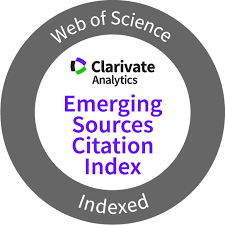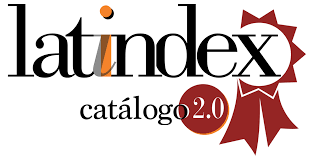Sustainability in the organisation and production of events: state of the art
DOI:
https://doi.org/10.5783/revrrpp.v14i28.870Keywords:
sustainability,, events, event organization, state of the art, corporate social responsibility.Abstract
Sustainability is currently considered one of the main challenges for professionals of event organization and production. The central objective of the research was to establish a state of the art regarding this object of study, through an exhaustive review of scientific and institutional literature published on sustainability in the organization and production of events. It also approaches it through the analysis of related concepts, such as corporate social responsibility; of various perspectives; and trends of study.
This paper seeks to provide a solid theoretical framework that can be used by academics and practitioners to guide future research and practice in this field. By exploring and synthesising knowledge in this field, we will provide a solid basis for the sector to approach the issue and make decisions in an industry with such an impact. Rather than a trend, sustainability should be seen as a necessity to ensure the viability of the sector and the well-being of society.
The structure of the paper includes a review of the authors' different approaches and perspectives on the definition of sustainable events, the characteristics of sustainable events and related concepts, such as corporate social responsibility, smart cities and the Sustainable Development Goals. These concepts have been pointed out by several authors as fundamental to integrate sustainability in the events industry.
It also addresses the impacts of events beyond the environmental aspects to which the concept of ‘sustainable event’ has often been confined. By broadening the definition of sustainability, we provide a more complete vision for any professional or researcher considering this study of the issue.
Furthermore, in this paper we analyse studies of different types of events and their relationship with sustainability, which includes sporting, cultural and commercial events. Each type of event and its relationship with sustainability has been studied by different authors involving different types of theoretical and practical approaches.
In this study we appreciate the development of the areas of study interest and trends in recent years regarding sustainability in the event industry. In this way, we see what trends we find today and what possible developments may occur in the future.
In the same way, with this project we seek to contribute to moving towards a more environmentally responsible professional model, encouraging the adoption of sustainable practices that reduce negative impacts and maximise the positive benefits of events. In itself, any professional must address sustainability due to the current context of climate crisis and social model that we face in society in general, however, in the events industry it becomes more pressing due to the negative impacts generated by events and which are addressed in this research.
The research concludes:
- There is a lack of definition of the concept of sustainable event that is motivated, in part, by the open debate regarding what sustainability entails, however, the existence of international regulations, such as ISO 20121, for certification of management of a sustainable event, It is crucial as a reference in the study of events.
- It is necessary to go beyond the environmental sphere and take into account, at least, the social and economic sphere, as well as to have an integrative perspective of sustainability in the industry, instead of limiting it to a type of event or specific actions, in order to avoid falling into greenwashing.
- The study of sustainability in events is an area of development in scientific literature that must go beyond bibliographic analyzes or reduced study samples.
Following this state of affairs, therefore, we consider that the adoption of comprehensive and multidisciplinary prisms in the events industry in terms of sustainability is inexcusable. This adoption allows us to transcend specific actions in the environmental field and develop skills in areas such as corporate social responsibility, as well as international regulations, agreed upon by experts and applied to all phases of the organization and production of events. In this way, we will be closer to achieving a more responsible events industry both in the present and for future generations.
Downloads
References
Aguinis, H. (2011). Organizational Responsibility: Doing Good and Doing Well. En S. Zedeck (Ed.), APA Handbook of Industrial and Organizational Psychology (pp. 855-879). American Psychological Association.
Alcaide F. (2007). Retos, tendencias y oportunidades en el sector de eventos. Druk Comunicación.
Alonso, J. M. P., y Jiménez-Morales, M. (2017). Eventos y protocolo: la gestión estratégica de actos corporativos e institucionales. Editorial UOC.
Amarella, G. (2020). Análisis acerca de los eventos corporativos. Eventos tradicionales versus la nueva modalidad surgida a raíz del COVID-19. [Trabajo Final de Máster]. Universitat Oberta de Catalunya. http://hdl.handle.net/10609/128168.
Andersson, T.D., Persson, C., Sahlberg, B. & Strom, L. (Eds.) (1999). The Impact of Mega Events. European Tourism Research Institute.
Campos, G. y Fuente, C. (2013). Los eventos en el ámbito de la empresa. Hacia una definición y clasificación. Revista de comunicación de la SEECI, 32, 73-105. https://doi.org/10.15198/seeci.2013.32.73-105
Casado, R. (2015). Aplicación de la RSC en la organización de eventos. Reconocimiento de la responsabilidad: Los EUBEA y los Premios Eventoplus. [Trabajo Final de Máster]. GRIN Verlag. https://www.grin.com/document/308210?lang=es.
Castells-Fos, L., Pont-Sorribes, C., Codina, L. (2022). La sostenibilidad de los medios a través de los conceptos de engagement y relevancia: scoping review. Doxa Comunicación, 35, 19-38. https://doi.org/10.31921/doxacom.n35a1627
Cavalcanti, A. R. y Cavalcanti, M. H (2018). Práticas sustentáveis aplicadas a eventos: uma realidade possível. Revista Turydes: Turismo y Desarrollo, 25. www.eumed.net/rev/turydes/25/eventos.html.
Cavagnaro, E., Postma, A. y Neese, T. (2012). Sustainability and The Events Industry. En N. Ferdinand y P. J. Kitchin (Eds.). Event Management: an International Approach (pp. 199–211). SAGE Publications, Ltd.
Da Costa, C. C. (2023). La sostenibilidad. Bubok Publishing S.L.
El País (15 de noviembre de 2023). El sabor de la transparencia, una cuestión de sostenibilidad. https://elpais.com/america/branded-content/2023-11-15/el-sabor-de-la-transparencia-una-cuestion-de-sostenibilidad.html
Estanyol, E. (2020). Hacia unos eventos más sostenibles. COMeIN, 98. https://doi.org/10.7238/c.n98.2030
Grupo Eventoplus (2024). Premios Eventoplus. https://www.grupoeventoplus.com/wp/premios-eventoplus.
Fernández, F. J. (2011). Sostenibilidad: palabra y concepto. Museos.es, 7-8, 16-25.
Fonseca, I., Bernate, J. & Tuay, D. (2022). La responsabilidad social corporativa y los eventos deportivos. Una revisión sistemática de la producción científica. SPORT TK-Revista Euroamericana de Ciencias del Deporte, 11, 8-8. https://doi.org/10.6018/sportk.470131
Fontes, N. Zanin, M. Teixeira, B. y Yuba, A. (2008). Eventos mais sustentáveis: uma abordagem ecológica, econômica, social, cultural e política. EdUFSCAR.
Fuente, C. (2009). Manual práctico para la organización de eventos: técnicas de organización de actos. Ediciones Protocolo.
Gallardo, L. (2023). Epistemología de la investigación teórica en Publicidad. En N. Navarro, R. Viander, y O. Serrano, (Coords.). Pensamiento, arte y comunicación: la importancia de hacer llegar el mensaje. 707-728. Dykinson, S.L.
Gaitán, J.A., Piñuel, J.L. (1998). Técnicas de investigación en Comunicación Social. Síntesis.
González, J. y Cuesta, P. (2018). De responsabilidad social a sostenibilidad corporativa: una revisión actualizada. ADResearch ESIC International Journal of Communication Research, 17, 46–71. https://doi.org/10.7263/adresic-017-04
Huerta, A. M. (2023). Comunicar persuasivamente mediante el binomio RR.PP.-RS en la organización de eventos sostenibles. Visual Review, 13, 1-16. https://doi.org/10.37467/revvisual.v10.4595
Ibáñez, A. (2016). Eventful cities: nuevas estrategias de sostenibilidad. COMeIN, 56. https://doi.org/10.7238/c.n56.1646
Jiménez-Morales, M. y Panizo J.M. (2017). Eventos y protocolo: la gestión estratégica de actos corporativos e institucionales. Editorial UOC.
López, E. y Corbacho, J. M. (2023). Las buenas prácticas en la organización de eventos antes y durante la COVID-19: análisis de los Premios Dircom Ramón del Corral, Premios Eventoplus y FIP Festival. Redmarka: Revista de Marketing Aplicado, 27(1), 95-110. https://doi.org/10.17979/redma.2023.27.1.9440
López-Cortés, O., Betancourt-Nunez, A., Bernal-Orozco, M., Vizmanos, B. (2022). “Scoping reviews: una nueva forma de síntesis de la evidencia”, Investigación Educativa Médica, 11(44). https://doi.org/10.22201/fm.20075057e.2022.44.22447
López, I. (2015). Sobre el desarrollo sostenible y la sostenibilidad: conceptualización y crítica. BARATARIA. Revista Castellano-Manchega de Ciencias Sociales, 20, 111-128. https://www.redalyc.org/articulo.oa?id=322142550007.
Moreno, C. (2021). Los ODS en la organización de eventos. COMeIN, 115. https://doi.org/10.7238/c.n115.2170
Mottard, E. y Muñoz, C. (2024). Hiperactivo. Un sector más fuerte que nunca necesita ‘vestirse despacio’. Eventoplus. https://www.eventoplus.com/informe-de-mercado-2024
Muñoz, C. (2023, 7 de septiembre). Cómo los destinos afrontan el reto de la sostenibilidad. Eventoplus. https://www.eventoplus.com/articulos/como-los-destinos-afrontan-el-reto-de-la-sostenibilidad
Naciones Unidas (2019). Objetivos de Desarrollo Sostenible de la Organización de las Naciones Unidas. https://www.un.org/sustainabledevelopment/es
Nakane, A. (2016). Sustentabilidade em Eventos no Brasil: realidade consciente ou mais um greenwash no Mundo Contemporâneo?. TURYDES: Revista sobre Turismo y Desarrollo loctenible, 9(21). https://www.eumed.net/rev/turydes/21/eventos.html
Organización Internacional de Normalización (2024). ISO 20212: 2024. https://www.iso.org/es/contents/data/standard/08/63/86389.html
Sánchez-Hervás, D. y Hernández, S. (2022). Actos y eventos sostenibles en las organizaciones más responsables de España. Human review, 14(4), 1-10. https://doi.org/10.37467/revhuman.v11.4146
Silva, O. (2002). El análisis del discurso según Van Dijik y los estudios de la comunicación. Razón y Palabra, 1(26). www.razonypalabra.org.mx/anteriores/n26/osilva.html
Soage, A. B. (2006). La teoría del discurso de la Escuela de Essex en su contexto teórico. Círculo de Lingüística Aplicada a la Comunicación, 1(26). http://www.ucm.es/info/circulo/no25/soage.pdf
Te hago Eco (2013). Eventos sostenibles para ciudades inteligentes: estudio sobre el valor que la sostenibilidad aporta a los eventos en España. Revista Intersección, 1, 36-45. https://revistas.elpoli.edu.co/index.php/int/article/view/227 .
Torrejón, M. (2024). En ruta hacia la sostenibilidad: Modelos circulares en eventos gastronómicos y la implicación del sector HORECA [Tesis Doctoral], Universidad Rey Juan Carlos. https://burjcdigital.urjc.es/items/2c409d7c-1b54-4663-ad3f-fb7a2c98c387
Torrego, A. y Paredes, G. (2008). Eventos sostenibles. Congreso Nacional del Medio Ambiente Cumbre del Desarrollo Sostenible. Fundación CONAMA. Del 1 al 5 de diciembre de 2008. Palacio Municipal de Congresos del Campo de Las Naciones. Madrid.
Ulloa, M., Farías, E. y Seguí, J. (2023). Eventos deportivos y sostenibilidad: una revisión sistemática (1964-2020). Apunts Educación Física y Deportes, 153, 101-113. https://doi.org/10.5672/apunts.2014-0983.es.(2023/3).153.09
UNEP, (2009). Green meeting guide 2009. https://www.leanbusinessireland.ie/includes/documents/Green%20Meeting%20Guide.pdf
Vallejo, J. C. (2017). Iniciativas de mercadeo ambiental y digital signage en las ferias comerciales como aporte al desarrollo sostenible. Pensamiento y gestión, 44. https://doi.org/10.14482/pege.44.10162
Valles, M. S. (2000). Técnicas cualitativas de investigación social. Síntesis.
Downloads
Published
How to Cite
Issue
Section
License
Copyright (c) 2024 Irene Zurita López, Luis Gallardo Vera

This work is licensed under a Creative Commons Attribution-NonCommercial-NoDerivatives 4.0 International License.
Authors publishing in this journal agree to the following terms:
a. Authors retain copyright and grant the journal the right to be the first publication of the work as licensed under a Creative Commons Attribution License that allows others to share the work with an acknowledgement of authorship of the work and initial publication in this journal.
b. Authors may separately enter into additional arrangements for non-exclusive distribution of the version of the work published in the journal (e.g., placing it in an institutional repository or publishing it in a book), with an acknowledgement of initial publication in this journal.
c. Authors are allowed and encouraged to disseminate their work electronically (e.g. in institutional repositories or on their own website) before and during the submission process, as it can lead to productive exchanges, as well as earlier and higher citation of published work (see The Effect of Open Access).





